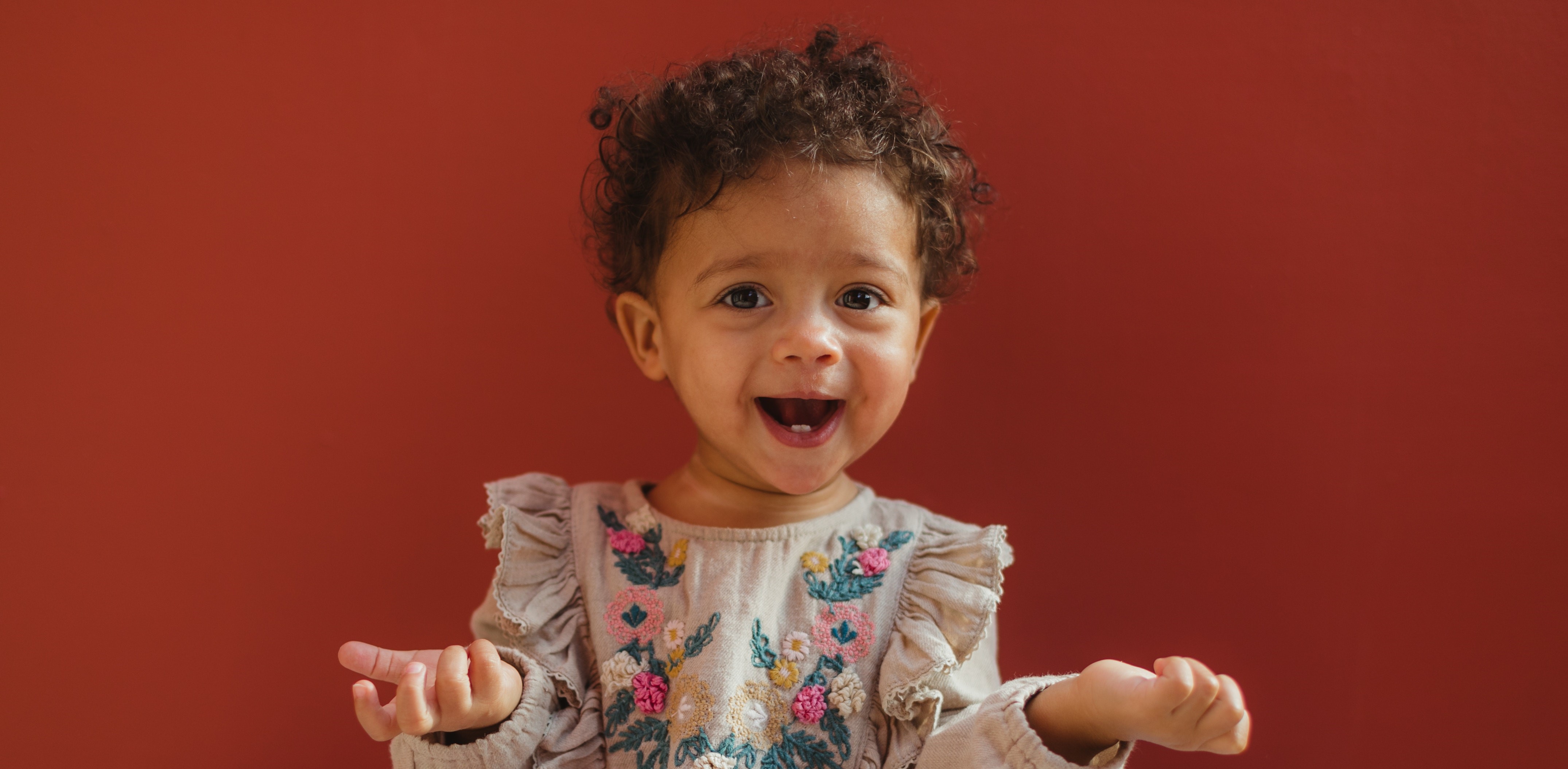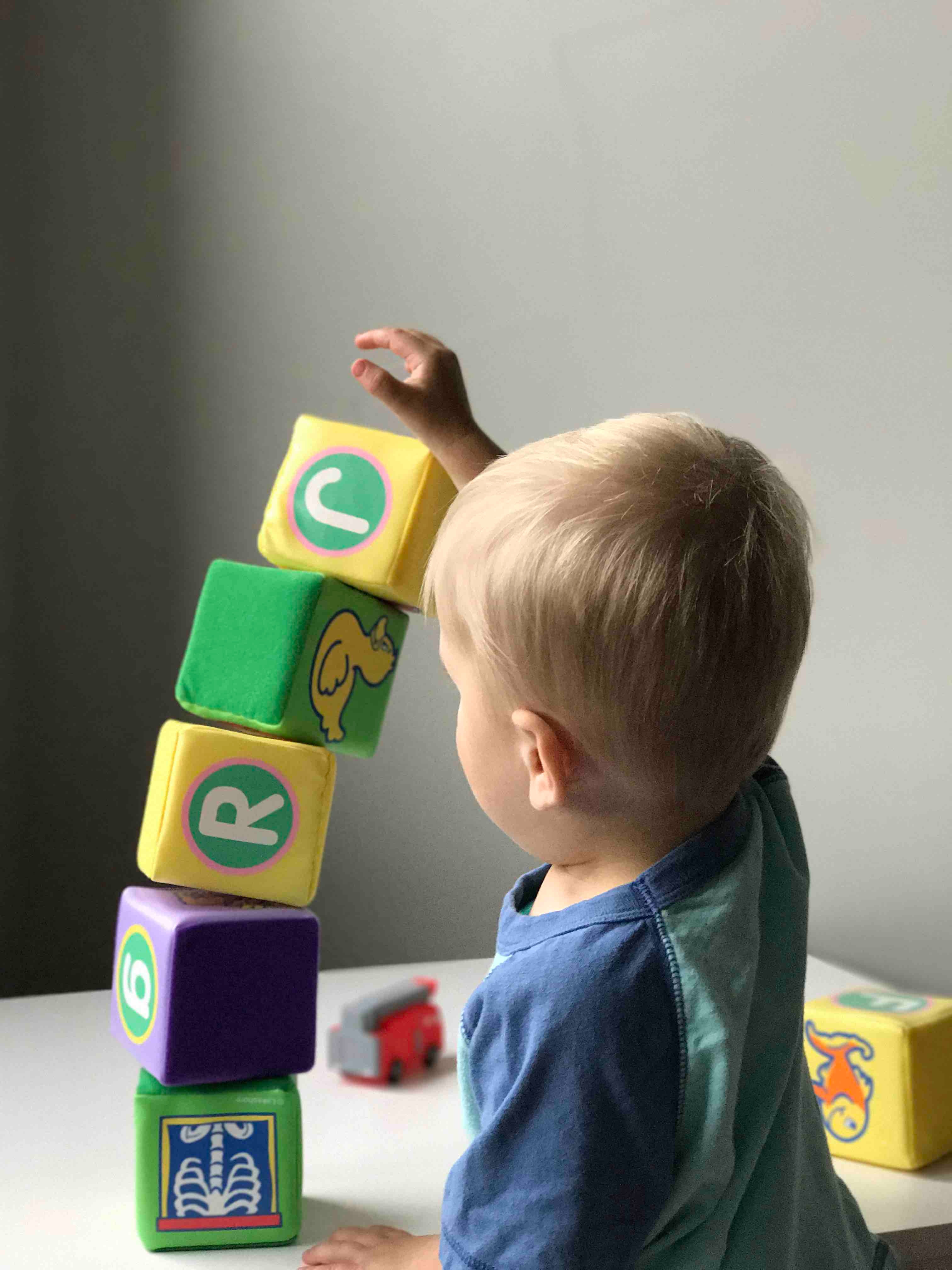Sometimes it can be really difficult to figure out if your child’s talking is developing appropriately for their age. This can be especially tricky if you don’t have other children to compare them to. We know that parents may not have an exact idea of what milestones their little ones are expected to achieve at certain ages. Luckily – we have a guide for you!
It’s important to first differentiate between “receptive” and “expressive” language:
Receptive language is your ability to listen and understand what is being said to you (“receiving” information).
Expressive language is your ability to speak in words and sentences (“expressing” information).
Below you will find guidelines for what is expected by each birthday, in terms of receptive and expressive language.
12-18 Months
Receptive Language:
- Becoming more interested in speech
- Follows simple requests e.g. sit down, come here
Understands “no”
Expressive Language:
- Babbles with inflection, sounding more like real words
- Uses simple gestures, e.g. shaking head for ‘no’
- First words emerge around 12 months; e.g. mama, dada
- Uses exclamations, such as “oh-oh!”
Tries to imitate words but may not be very good at this yet

2 – 2.5 Years Old
Receptive Language:
- Understands instructions containing 2 key words (e.g. give me the book & the chair; get the big dog)
- Understands some positional words (e.g. in, on, off, out, up, down)
- Can identify actions (e.g. Where is sleeping/ sitting/ walking?)
- Understands the use of objects (e.g. find the one you cut with) and can identify parts of objects (e.g. find the wheels on the car)
- Understands some simple questions (e.g. Where? What’s that? What is x doing? Who/Whose?)
- Understands some pronouns (e.g. me, mine, my, you)
- Can point to some less familiar body parts
- Understands ‘big & little’ and ‘one & all’”
Expressive Language:
- Vocabulary of 50 words
- (minimum at 24 months) to 400 words
- Using a variety of 2-3 word sentences
- Using some pronouns
- instead of names (e.g. me, my, it, you) and positional
- words (e.g. in, on, off, under, up)
- Sings simple songs or rhymes (e.g. Twinkle, Twinkle)
3 – 3.5 Years Old
Receptive Language:
- Understands instructions containing 3 key words (e.g. get the cup, spoon & plane; find the big blue car)
- Understands more questions (e.g. Find the one that can.., What is happening?, Find the one that is x and x)
- Can match colours
- Understands more positional words (e.g. above, below, under, over, through)
- Understands new concepts (e.g. full, empty, more, less, same, hard)
Expressive Language:
- Using 3-5 word sentences
- Using some ‘wh’ word questions (e.g. Who? Where? What?)
- Using new positional words (e.g. above, below, over, under, through)
4 – 4.5 Years Old
Receptive Language:
- Can answer more difficult questions (e.g. What will happen next? What could x say? Tell me how…)
- Can understand instructions containing 4 key words (e.g. get the blue cup & the red spoon; get big brown dog & the cat)
Understands shape & colour names and some ‘time’ words (e.g. today, lunch time, winter)
Expressive Language:
- Vocabulary of 1000 words & using 4-5 word sentences
- Starting to use joining words (e.g. and, then)
- Enjoys telling stories & asking questions
- Using correct grammar with occasional mistakes
- Use of past tense is emerging
5 Years Old
Receptive Language:
- Now able to answer more abstract questions that require more problem solving and reasoning (e.g. What will happen if…?, Why will…?, How can you tell…?)
- Able to listen to a story & answer questions about that story
Understands some opposites (e.g. wet/dry, high/low, big/little)
Expressive Language:
- Using 6+ word sentences & mostly correct grammar
- Staring to use a range of joining words (e.g. because, but, if) and complex verbs (e.g. think, know)
- Asking lots of questions
- Can retell familiar stories in the correct order
- Explains the function of objects
Talks about events that are happening, have happened or might happen

As always, when we talk about developmental milestones it’s important to remember they are guidelines and that every child is different. It’s okay for them to be a few months earlier or later than the milestones listed above.
However, if you are concerned that they aren’t developing as they should be or would just like to check – drop us an email and we can help you figure it out!
